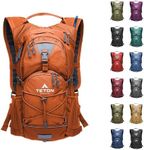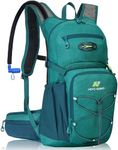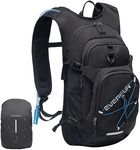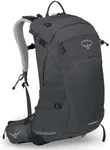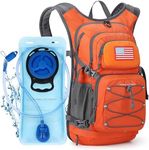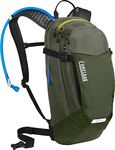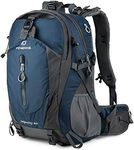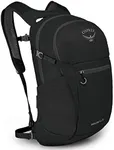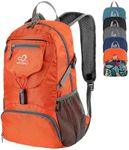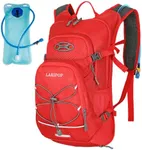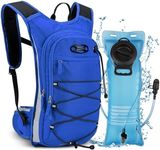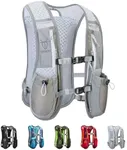Buying Guide for the Best Hiking Day Pack
Choosing the right hiking day pack is essential for a comfortable and enjoyable outdoor adventure. A good day pack should be able to carry all your essentials without being too heavy or cumbersome. When selecting a hiking day pack, consider factors such as capacity, fit, comfort, and features. Understanding these key specifications will help you make an informed decision and find the best pack for your needs.CapacityCapacity refers to the volume of the pack, usually measured in liters. This spec is important because it determines how much gear you can carry. For short hikes or minimal gear, a pack with a capacity of 10-20 liters is sufficient. For longer hikes or if you need to carry extra clothing, food, or gear, consider a pack with a capacity of 20-30 liters. If you plan to carry a lot of gear or go on all-day hikes, a pack with a capacity of 30-40 liters might be necessary. Choose a capacity based on the length of your hikes and the amount of gear you typically carry.
FitFit is crucial for comfort and stability while hiking. A well-fitting pack will distribute the weight evenly across your back and shoulders, reducing strain and fatigue. Packs come in different sizes, often based on torso length. To find the right fit, measure your torso from the base of your neck to the top of your hip bones. Many packs also have adjustable straps and hip belts to fine-tune the fit. Make sure to try on the pack with some weight in it to ensure it feels comfortable and secure.
ComfortComfort is determined by the pack's design and padding. Look for packs with padded shoulder straps, a padded back panel, and a hip belt to help distribute the weight. Ventilation is also important, especially for warm weather hikes, so consider packs with mesh back panels or ventilation channels. Some packs have additional features like load lifter straps and sternum straps to improve comfort and stability. Choose a pack that feels comfortable and doesn't cause any pressure points or chafing.
FeaturesFeatures can enhance the functionality and convenience of a hiking day pack. Common features include multiple compartments and pockets for organization, hydration reservoir compatibility, and external attachment points for trekking poles or other gear. Some packs also have rain covers to protect your gear in wet conditions. Think about what features are important to you based on your hiking style and the gear you carry. For example, if you use a hydration reservoir, make sure the pack has a dedicated sleeve and hose routing.
WeightThe weight of the pack itself is an important consideration, especially for longer hikes. A lighter pack will be easier to carry and reduce overall fatigue. However, lighter packs may have fewer features or less padding. Balance the weight of the pack with the features and comfort you need. If you prioritize a lightweight pack, look for minimalist designs with essential features. If comfort and features are more important, be prepared to carry a slightly heavier pack.
DurabilityDurability refers to the pack's ability to withstand wear and tear. This is important for ensuring your pack lasts through many hikes. Look for packs made from high-quality materials like ripstop nylon or polyester, which are resistant to tears and abrasions. Reinforced stitching and durable zippers also contribute to a pack's longevity. If you frequently hike in rugged terrain or carry heavy loads, prioritize durability to ensure your pack can handle the demands.
